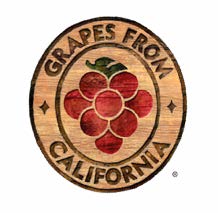Fresno, CA – A new study, published in the scientific journal Neurology found that a higher intake of plant compounds known as flavonols, is associated with a 48% decreased risk of developing Alzheimer dementia.

Flavonols are a type of bioactive compound found in grapes, as well as other fruits and vegetables. Flavonols are known for promoting beneficial antioxidant and anti-inflammatory activities. Grapes of all colors – red, green, and black – are a natural source of flavonols, including kaempferol, myricetin, quercetin, and isorhamnetin. In this study, the benefit observed was most strongly associated with kaempferol, myricetin and isorhamnetin; quercetin was not associated with Alzheimer dementia, although it has been linked to numerous other health benefits.
Other research has linked the consumption of grapes to brain health: in a clinical study conducted at UCLA, researchers found that eating grapes helped protect against metabolic decline in Alzheimer-related areas of the brain.
“The new findings linking higher intake of flavonols to a reduced risk of Alzheimer dementia is very exciting and supports the previous positive findings of the beneficial impact grape consumption can have on brain health,” said Kathleen Nave, president of the California Table Grape Commission BB #:153597. “Importantly,” Nave said, “research indicates that just 2 1/4 cups of grapes a day is all it takes to make a positive difference. With more clinical research in this critically important area of human health underway we look forward to having more positive news to share.”
Contact
Jeff Cardinale
jeffc@grapesfromcalifornia.com


